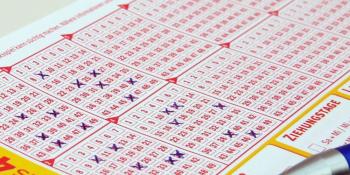Bright Future for Philippines Gambling Industry
Posted: March 4, 2013
Updated: March 4, 2013
Filipinos earn more and spend more, even on gambling.

Gambling is a significant segment of the economy; it is therefore not unusual for statements by bank analysts to become both economic and gambling news.
The latest to join this list is a Credit Suisse report titled “Let the Games Begin”. According to its findings a large domestic market, combined with favorable local and international trends are expected to put the Philippines’ gambling industry ahead of Singapore by 2018.
The Swiss bank forecasts a 28% compounded annual growth rate, which is expected to push the local market above the USD 5.6 billion mark in just 5 years.
Much of this revenue is expected to land in the treasury, since the country’s numerous casinos, which are open to local residents are all government owned. Philippine gambling laws separate casino access by nationality, with only foreigners being allowed to play in establishments located in the Cagayan Special Economic Zone and Freeport in the northeast.
The country’s population and permissive gambling laws were among the leading factors supporting the bullish outlook. The Philippine’s population figure of 97 million is nearly three times that of Singapore, Malaysia and Macau combined.
“We view the Philippines as having a potentially larger domestic market in the high-margin mass segment compared to other Asian gaming hubs on the back of favourable demographics,” said the report.
The Philippines has not only the size of its population working to its advantage, but its demographic and economic structure as well. The country has the fastest growing working age population in the region, with an expected annual growth rate of 2% for the next 10 years. Coupled with increasing income and spending power creates a fertile ground for a booming gambling industry.
As other regional gambling hubs are faced with bottlenecks in hotel and casino development, the Philippines could also profit from an influx of gamblers diverted from those destinations.
The regulation affecting the Philippine mobile gambling sector is also quite accommodating, with foreign operators eligible for licenses in the Cagayan zone, so it is expected to contribute a significant share of the revenues.












